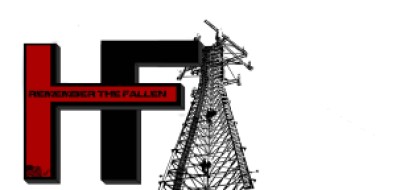Podcast: Play in new window | Download | Embed
Subscribe: Apple Podcasts | RSS
This is part 2 of a 3-part series.
For the contractor, flat pricing causes change order issues. If there are problems at the site, then the contractor must ask for a change order. If the GC who hired them does not want to pay, then the contractor risks not getting paid if the job is not complete. The common excuse is that there is no money for change orders. Usually, the GC does not want to go back and ask for more money because it would look like they don’t know what they are doing or it could mean that the margins are so small they don’t have any reserve dollars. Perhaps they know that the customer won’t approve any up charges. Maybe approvals would not happen in a timely manner or cause delays. It all adds up to problems down the road.
The model for most of these services are “flat fee”. Whether it’s done through RFP or reverse auction, the GC will hire contractors and expect a safe job with trained workers to go to the lowest bidder. While on paper this looks good, to be the lowest bidder must be efficient and assume no problems to creep up on the job. If they are losing money they start to make other cuts, usually in training and safety. If the work ramps up, then they start to hire inexperienced people or they turn down the work.
With this change, the way they hire workers may change. Workers may have a new model. Many contractors may want to pay them by the job. With tower work it is a problem because of safety training, safety gear, insurance, taxes, liability, and travel. So many variables in an industry that the carriers have already beat to death. GOD bless the contractors who are still doing it and doing a good job at it.
Sign-up to get all your updates!
Subscribe to catch all the episodes on iTunes or Stitcher or Overcast![DAS 101 Distributed Antenna System: A Basic Guide to In-Building Wireless Infrastructure by [Baasan, Soyola]](https://i0.wp.com/images-na.ssl-images-amazon.com/images/I/41lhG0BQVJL.jpg?resize=99%2C158&ssl=1)
Getting paid even when you finish the work can be a problem. Payment terms have gotten ridiculous because companies want to get paid before they pay anyone and some carriers want stupid payment terms like Net 120, net 90 is bad enough. It should be net 30. Remember to be clear that the timer starts when the work is finished. If you wait for the inspection them many carriers delay the inspection for weeks, maybe months. Yes, I have seen this in the industry, be clear in your scope of work or contract so you know when the timer starts. The most important thing you can do is define the terms ahead of time and agree on them with signatures. Your signature and the customers signature. It’s your best bet to get paid or at least show up in court to get paid. Again, I digress, back to the point.
In the old days, contractors would get a bonus for getting done early and mistake free. Now they don’t get paid because they take too long or if they have a problem, even if it’s not their fault, at least not full price. Sometimes GCs have no intention of paying no matter what happens. They leave companies high and dry. This is very common in our industry. Know your customer. Know your terms. Know your milestones. It pays to ask around about the customer and the person you’re working with. While you may be doing an install that is for Verizon or AT&T, the turf vendor you’re working with may pocket all the money and leave the crew with nothing. I hear this story all the time. It pays to talk to other contractors. Most are honest about getting screwed. That’s why they generally like to work for larger OEMs and GCs.
While I talk mostly about tower work here, the problem exists for drive teams, site surveys, inspections, and so on. RF engineering work is leaving the US and going mostly to India where the talent pool is deep and the pay scale is much lower. To be honest they do a fine job. Outsourcing is affecting the entire industry. The carriers want to be efficient, the KPIs, (key performance Indicators), are all about the budget. They want the biggest band for this buck. They still want quality, but like Sprint advertises, if you’re within 1%, we’re good, right?
See Part 1 and Part 3!
Be smart, be safe, and pay attention!






